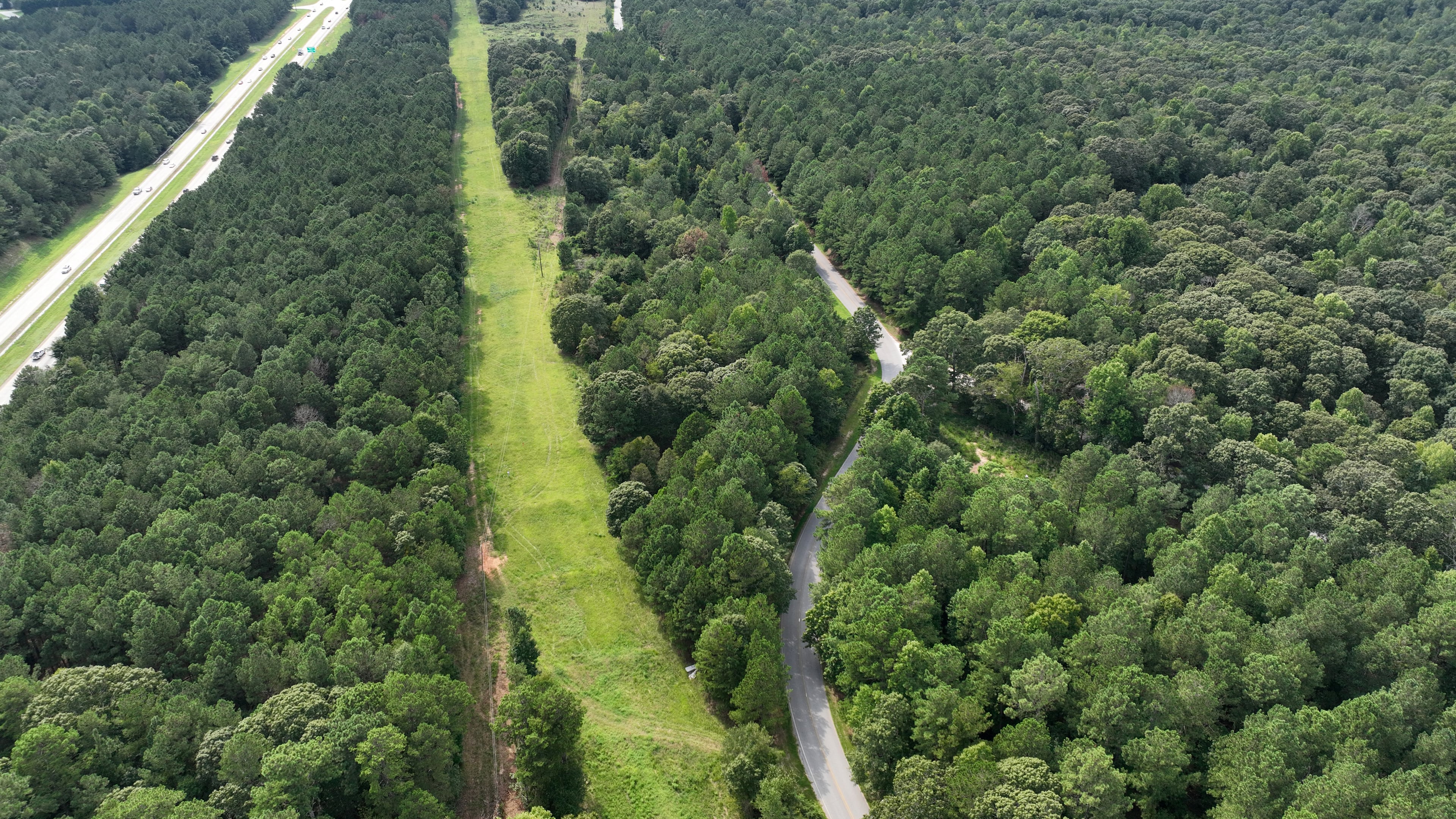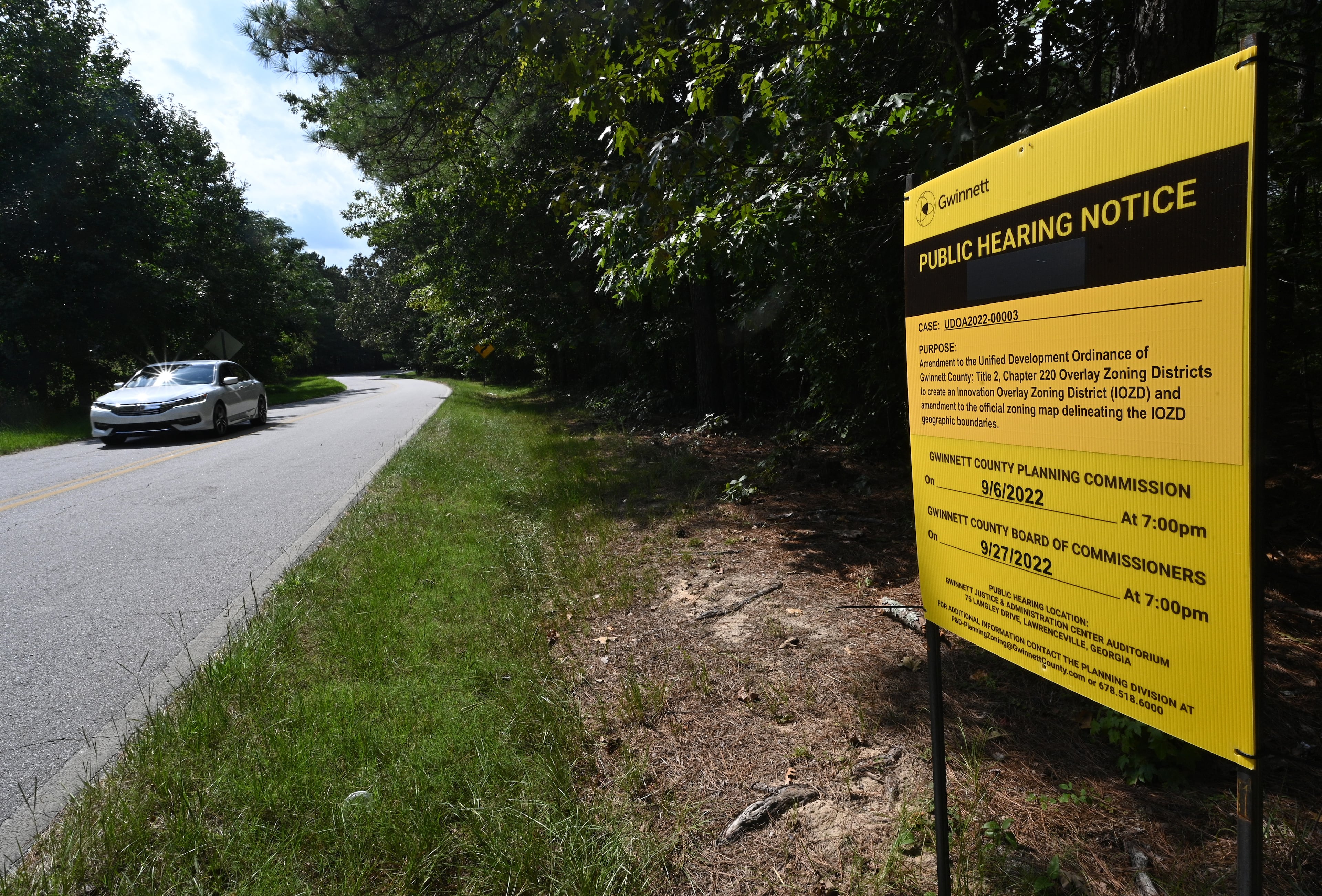Groundbreaking expected soon for Rowen development in Gwinnett

Officials hope next month to begin building Rowen, a 2,000-acre development in eastern Gwinnett County with the lofty goal of becoming a global destination for research and innovation in agriculture, medicine and environmental sciences.
“I’m just really excited to get groundbreaking underway and have that vision start coming to life,” said Mason Ailstock, president of the Rowen Foundation, the nonprofit overseeing the project. Gwinnett County bought the land two years ago and is funding Rowen until the development sustains itself.
The first shovels will begin laying a road into what is now pine forest north of Route 316, east of Dacula. Over the next few decades, the land will be developed into low- and medium-density research and office buildings, public green space, trails and a mixed-use village with multi-family homes.
Ailstock said he hopes to announce within 18 months the first company or companies that will set up as Rowen’s founding partners. He said the Georgia Department of Economic Development has shortlisted Rowen as a headquarters or research center site for several established companies that could bring hundreds of jobs apiece. He said the foundation received descriptions of the companies but not their names.
The first companies won’t have the benefit of buying into an established research park but will be able to claim credit for helping design and create it.
“This is buying a piece of property and becoming a part of something much larger,” Ailstock said. “We are curating a community. We are not just transacting on real estate.”
Forty miles southwest, Georgia Tech’s Science Square broke ground last month near downtown Atlanta with a similar mission. But Ailstock said Science Square, geared toward startups, is not competition. It could even benefit Rowen as a potential feeder for companies who might later expand there, Ailstock said. Bert Reeves, a former state legislator turned Georgia Tech vice president, is on the Rowen board.
As construction begins, the Gwinnett County Board of Commissioners is wrapping up a series of public hearings on a proposed new zoning district, confined to Rowen land, that would require new development and future redevelopment to comply with the Rowen Foundation’s design guidelines.

The guidelines detail prohibited uses for the land and require developers to follow certain environmentally conscious practices. They preserve green space, require landscaping from a list of preferred plants and cap building heights at five to eight stories, depending on their location. All streets must be designed for bikes, pedestrians and transit as well as cars, according to the guidelines.
If the county commission approves the zoning district, those who want to build for Rowen would first get approval from an Architectural Guidance and Review Board appointed by the foundation overseeing the project. The approval would be required before the county issues a land development or building permit.
At recent public hearings for the proposed zoning district, a handful of residents, including adjacent property owners, expressed opposition to large-scale development of the rural area and public funding for the project.
Rastus Franklin, 83, who has lived nearby on Drowning Creek Road his whole life, told commissioners Rowen would diminish the area’s appeal.
“It’s a beautiful area that has not been disrupted and it looks like the Rowens will mess that up for us,” Franklin said. “I might not even be here long enough to see the end result, but I’m just opposed to it.”
Melvin Everson of Snellville, a member of Rowen’s community advisory board, said the project will be important to Gwinnett Technical College, where he is vice president of economic development.
“This is a phenomenal opportunity for Gwinnett County,” Emerson said.
BY THE NUMBERS
Rowen, a research center planned near Dacula, will be the largest development in Gwinnett County’s history. Here are some numbers about the project:
2,000
Acres on which the development will be built.
90,000
Approximate number of jobs expected to be created this century.
At least $74 million
Amount of bonds and loans approved by the county for the project.


